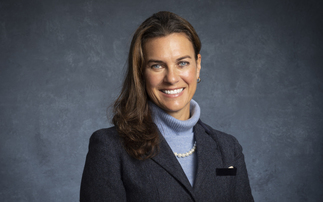Prince Charles hails 'bristling' number of governments and firms announcing net zero emissions targets in foreward to the report
A strategic roadmap to aid corporates in plotting their net zero transformation in line with the goals of the Paris Agreement has been launched today by the University of Cambridge Institute for Sustainability Leadership (CISL), bringing together insights from a raft of leading businesses.
Published to mark the fifth anniversary of the global climate treaty that was brokered in the French capital at the 2015 COP21 Summit, the report offers companies a strategic framework for how to reach net zero emissions by 2050 or sooner across their core businesses, value chains, and wider economies, according to CISL.
The influential business school said the roadmap, which features a foreword from the Prince of Wales extolling the virtues of building a net zero business, was designed to actively accelerate corporate emissions reduction efforts and deliver on the decarbonisation pledges and commitments that have been made by a fast-growing band of businesses in recent years.
Insights in the report have been drawn from some of the leading companies that delivered the first wave of net zero commitments, such as Unilever, Danone, IKEA, Interface, and Lloyds Banking Group.
Lindsay Hooper, CISL's executive director of education, said she hoped the "first of its kind" framework would help drive bold and effective leadership from corporates "that steps up to shape new markets and transition pathways, to establish new norms".
"We are entering the decade of delivery and all credible evidence points to the fact that a healthy planet goes hand in hand with healthy populations and economies," she said. "The private sector has a vital role to play and the consensus is forming that decarbonisation makes good business sense."
However, she also warned that "delay will only make the size of the challenge greater and the costs of the solutions higher."
The roadmap - titled Targeting Net Zero: A strategic framework for business action - concedes achieving net zero emissions is a hugely challenging task that "will require companies in all sectors to act quickly and effectively to remove carbon emissions from their operations, their supply chains and from the use and disposal of their products and services".
Moreover, it warns that failing to decarbonise rapidly enough will lead to an even greater challenge to create a net negative emissions economy "in which new technology and nature-based solutions are deployed at scale and in economically viable ways to safely remove greenhouse gas emissions from the atmosphere".
As such, writing in the foreword Prince Charles argued a managed transition marked by rapid decarbonisation towards net zero emissions by 2050 at the latest "is the safest and most credible way forward".
"Today, there is a growing alignment around a net zero future," he writes. "We can envisage a world where fossil fuel powered economies give way to a new, decarbonised and circular economic system that prioritises a healthy planet and thriving communities."
Governments, companies, and public bodies, he argues, are now "bristling" with net zero commitments, citing recent climate pledges from the EU, China, the National Health Service, and the Ministry of Defence in the UK.
He also stressed that the coronavirus crisis has "deepened, rather than derailed, the climate debate and neither crisis can be seen in isolation".
"If anything, the Covid-19 crisis has served as a powerful reminder of the vital, inseparable and interconnected relationships within human societies, as well as between humans and the natural world," he adds.
The new report draws on CISL's work with policymakers, financial organisations, and businesses, as well as interviews with senior decision makers, to identify four overarching tasks that can aid businesses in developing their response to the net zero challenge.
Companies should aim to align their organisational purpose, strategy, and business models with evidence-based short and long term targets to deliver net zero emissions, backed by robust measurement and transparent progress reporting, it contends.
Net zero practices should also be embedded into a company's own operations and supply chains, according to the report, which concludes by urging firms to ramp up efforts to engage, collaborate, and advocate for climate action across regions, sectors, and markets.
Lending his backing for the roadmap, Unilever CEO Alan Jope said actions taken over the coming decade "will decide whether we achieve net zero by 2050".
"It's as simple as that," he said. "This report gives businesses clear plans and strategies to help deliver the Paris Agreement - and eradicate the false dichotomy between sustainability and economic growth."










